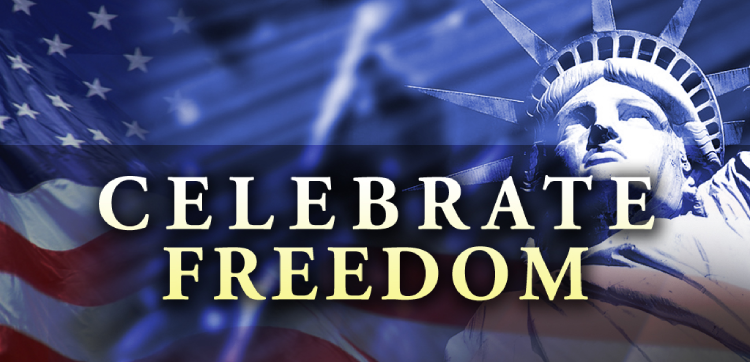
Freedom, as it resonates in the hearts of Americans, is a concept deeply interwoven with the fabric of the nation’s identity. However, the essence of freedom often gets lost in the political rhetoric and the varying interpretations of what it means to be free. To truly grasp the meaning of freedom for all Americans, we must dive into the roots laid down by the Founding Fathers and the subsequent interpretations through the lens of constitutional law.
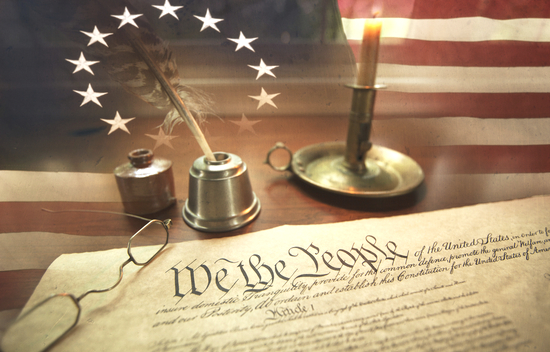 Freedom as Defined by the Constitution
Freedom as Defined by the Constitution
The Constitution as a Guardian of Freedom
The United States Constitution stands as more than just a legal framework; it is a profound symbol of liberty, a document that transcends time to protect the core values of freedom. Crafted with meticulous care by the Founding Fathers, it was intended not only to create a functional government but to set boundaries around governmental power, thereby safeguarding individual rights. The Constitution, along with its Bill of Rights, acts as a sentinel, ensuring that government remains the servant of the people, not their master.
This document’s enduring nature is not merely a testament to its legal brilliance but to its philosophical depth. It embodies a vision where freedom is not just a privilege bestowed by a benevolent authority or a natural occurrence but a fundamental right, deeply entrenched in the legal structure of the nation. This perspective shifts freedom from being contingent upon the whims of those in power to being an inalienable aspect of citizenship.
The Bill of Rights: A Shield Against Tyranny
The Bill of Rights, an integral part of the Constitution, explicitly lists certain liberties that the government is forbidden from infringing upon. These rights, from freedom of speech to the right to bear arms, are not mere suggestions but legal mandates that protect individuals from potential tyranny. This collection of amendments underscores the belief that freedom must be actively guarded against the encroachment of power, even when that power is democratically elected.
The enduring relevance of the Bill of Rights lies in its ability to adapt to changing times while holding firm to its original intent. It ensures that as society evolves, the core freedoms remain protected, providing a stable ground upon which the American experiment in liberty can continue to thrive. This aspect of the Constitution not only limits government overreach but also fosters an environment where individual initiative and thought are encouraged and protected.
Economic Freedom as an Extension of Personal Liberty
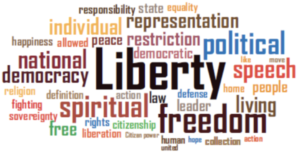 In the tapestry of American freedoms, economic liberty holds a special place, intricately woven into the broader fabric of personal freedoms. This connection was not merely an oversight by the Founding Fathers but a deliberate understanding that economic self-determination is fundamental to the broader concept of liberty. The Constitution, through its various amendments and interpretations, underscores that the freedom to engage in economic activities without excessive governmental interference is not just beneficial but essential for individual autonomy.
In the tapestry of American freedoms, economic liberty holds a special place, intricately woven into the broader fabric of personal freedoms. This connection was not merely an oversight by the Founding Fathers but a deliberate understanding that economic self-determination is fundamental to the broader concept of liberty. The Constitution, through its various amendments and interpretations, underscores that the freedom to engage in economic activities without excessive governmental interference is not just beneficial but essential for individual autonomy.
The right to choose one’s profession, to work in a chosen field without unnecessary regulatory burdens, forms the bedrock of economic freedom. This liberty ensures that individuals can pursue their passions or economic interests, which often translates into personal fulfillment and societal progress. The Founding Fathers recognized that when people are free to innovate, create, and compete in the marketplace, it not only enhances personal prosperity but also drives the collective wealth and advancement of the nation.
Property Rights and Economic Self-Determination
Central to this economic freedom is the right to property. Property rights, as enshrined in the Constitution, serve as both a protection and a tool for economic activity. The ability to own, use, or dispose of property freely underpins much of what we consider economic liberty. It’s not just about physical possessions but encompasses intellectual property, financial assets, and the fruits of one’s labor. This right to property is a safeguard against arbitrary governmental seizure or control, ensuring that individuals can benefit from their efforts and investments, thereby fostering a dynamic economy where risk-taking and investment are rewarded.
The linkage between property rights and personal freedom lies in the empowerment it gives to individuals. When one’s property, including one’s labor, is secure, it encourages a culture of savings, investment, and entrepreneurial activity. This, in turn, supports the broader concept of the pursuit of happiness, where economic security and growth are significant components.
Economic Freedom and the Pursuit of Happiness
The Declaration of Independence’s mention of the “pursuit of happiness” is often interpreted through the lens of personal freedom, but it carries significant economic implications as well. Economic freedom, as an extension of personal liberty, allows individuals to define what happiness means for them, which often includes the freedom to strive for economic betterment. This pursuit is not merely about material wealth but about achieving a state where one’s economic conditions do not hinder personal development or fulfillment.
In this context, economic freedoms serve as a pathway to achieving personal goals, whether they be education, starting a family, or contributing to community or charitable causes. The Constitution’s protection of these freedoms ensures that individuals have the opportunity to achieve their version of happiness, unencumbered by excessive governmental restrictions on their economic activities.
The Role of the Supreme Court
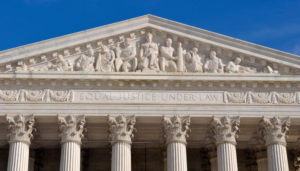 The Supreme Court of the United States holds a unique position as the ultimate interpreter of the Constitution, wielding the power to define and protect both economic and personal liberties across generations. This role is not merely procedural but profoundly philosophical, as the Court navigates the delicate balance between upholding the original intent of the Constitution and adapting its principles to contemporary issues. Through its landmark decisions, the Court has shaped the understanding of freedom, ensuring that these fundamental rights evolve with society yet remain rooted in constitutional principles.
The Supreme Court of the United States holds a unique position as the ultimate interpreter of the Constitution, wielding the power to define and protect both economic and personal liberties across generations. This role is not merely procedural but profoundly philosophical, as the Court navigates the delicate balance between upholding the original intent of the Constitution and adapting its principles to contemporary issues. Through its landmark decisions, the Court has shaped the understanding of freedom, ensuring that these fundamental rights evolve with society yet remain rooted in constitutional principles.
Historical Evolution of Constitutional Rights
Over centuries, the Supreme Court has been instrumental in expanding and clarifying the scope of constitutional rights. From cases like Marbury v. Madison establishing judicial review to Brown v. Board of Education on desegregation, the Court has not only interpreted but actively shaped societal norms on equality, privacy, and economic freedoms. These decisions reflect the Court’s commitment to a living Constitution, one that grows with the nation while preserving the essence of its original text.
The Court’s interpretations of economic liberties, for instance, have oscillated over time, from a laissez-faire approach in the early 20th century to more nuanced views on regulation and rights in modern times. This dynamic approach has allowed economic freedoms to remain relevant and protected, adapting to the complexities of an increasingly interconnected global economy.
Adapting to New Challenges
As societal structures change, so do the challenges to individual liberties. The Supreme Court’s role becomes particularly crucial in defining how traditional freedoms apply in the digital age, in contexts of national security, or in the face of environmental concerns. By interpreting the Constitution through cases that address new technologies, privacy in the internet era, or the balance between security and liberty post-9/11, the Court ensures that freedom is not a static concept but one that must be continually re-evaluated and protected.
This adaptability is not just about legal interpretation but about the Court’s ability to foresee how constitutional rights can be applied to future technologies or social movements, ensuring that the Constitution remains a relevant document for all Americans, irrespective of the era.
Preserving Core Principles
While the Supreme Court’s decisions adapt to the times, they also strive to preserve the core principles of the Constitution. This balance is delicate; too much adaptation could dilute the original intent, while too little could render the Constitution irrelevant. The Court’s jurisprudence, therefore, often involves a careful examination of historical context alongside current societal values.
For instance, when dealing with economic liberties, the Court has historically oscillated between protecting the rights of businesses from overregulation and acknowledging the government’s role in protecting consumers and workers. This nuanced approach underscores the Court’s commitment to preserving the balance between individual economic freedom and the common good, ensuring that economic liberties do not infringe upon personal rights or public welfare.
The Living Document Through Judicial Interpretation
The Supreme Court’s pivotal role in interpreting the Constitution ensures that freedom remains a vibrant, evolving concept within American society. By adapting constitutional rights to contemporary issues, the Court not only safeguards these freedoms against obsolescence but also reaffirms the enduring relevance of the Constitution as a living document. This dynamic interplay between historical intent and modern application is what keeps the spirit of freedom alive, relevant, and protective of both economic and personal liberties for all Americans.
While the concept of a “living Constitution” suggests adaptability to modern times, it also carries risks. Liberal interpretations that view the Constitution as a document to be constantly reshaped by contemporary values can lead to the erosion of its original principles. This approach might prioritize current societal trends over the foundational rights and checks designed by the Founders, potentially undermining the stability and predictability of the law. Such flexibility can inadvertently allow for the gradual dilution of constitutional freedoms, transforming them based on fleeting political or cultural whims rather than preserving the enduring intent of the document.
Freedom Beyond Political Platforms

The essence of freedom as conceived by America’s Founding Fathers extends far beyond the transient nature of political campaigns. While politicians frequently harness the term “freedom” to galvanize support, its true depth and significance are embedded in the framework of the Constitution, a document designed to be a constant, not a variable in the political equation. This foundational understanding positions freedom as a principle that must remain unaltered by the fluctuations of political tides, emphasizing its permanence and fundamental role in American governance.
The Constitution as a Safeguard
The Constitution serves not only as the legal foundation but as the ultimate bulwark against the erosion of freedom by political expediency. It was crafted with the foresight that governance would be subject to the passions and interests of the moment, yet freedom should remain untouched by these temporary influences. The rule of law, as established by the Constitution, ensures that individual liberties are not subject to the whims of those in power but are universally protected against overreach, regardless of who holds office. This is the enduring promise of the American system: that freedom is a right, not a grant from the government.
The Role of Vigilance in Democracy
This understanding of freedom necessitates active participation and vigilance from citizens. Democracy thrives not just through voting but through continuous engagement with the legislative, judicial, and executive processes. Citizens are called to scrutinize proposed laws, policies, and judicial decisions through the lens of constitutional fidelity. This vigilance is not about partisanship but about protecting the core values of liberty from being compromised for short-term political gains. It’s about ensuring that every action of the government is measured against the Constitution’s standards of freedom.
Freedom as a Political Ideal
Politicians invoking freedom in their discourse is often part of a broader narrative to connect with the electorate. However, the danger lies in reducing freedom to a mere campaign promise, stripping it of its legal and philosophical weight. True freedom, as envisioned by the Founders, is not about scoring political points but about establishing a society where individual rights are sacrosanct. This distinction is crucial, as it calls for a political culture where freedom is understood as a non-negotiable aspect of governance, rather than a bargaining chip.
Ensuring Alignment with Constitutional Freedoms
The challenge for both politicians and citizens is to align governmental actions with constitutional freedoms. This alignment requires a deep respect for the rule of law, where freedom is not just a buzzword but a guiding principle. It demands that policies be crafted with an eye towards enhancing, not limiting, individual liberties. This approach ensures that freedom remains a beacon for policy-making, guiding decisions in legislative, executive, and judicial branches towards upholding rather than undermining the constitutional promise.
A Call to Guardianship
The recognition that freedom transcends political agendas is a call to action for all Americans. It is a reminder of the duty to guard against the dilution of freedom for the sake of immediate political advantage. By understanding freedom as a constitutional right rather than a political tool, citizens can foster a culture where the rule of law reigns supreme, ensuring that freedom remains a steadfast and enduring principle of American life, not subject to the capriciousness of electoral cycles but secured by the enduring wisdom of the Constitution.
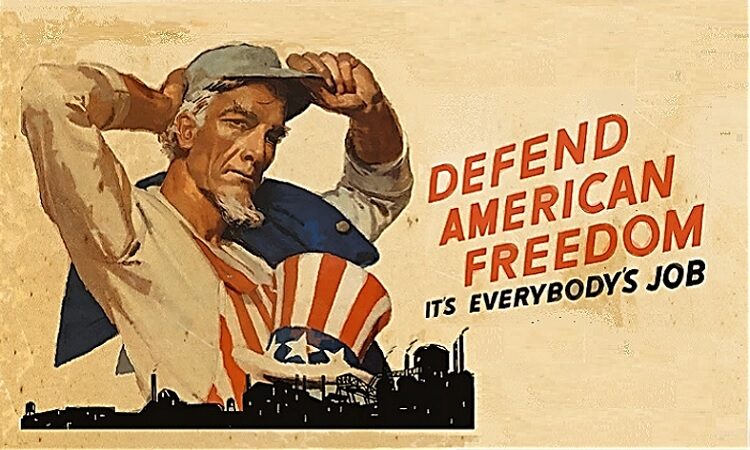
Conclusion: A Call to Cherish and Protect
For every American, freedom transcends the mere act of casting a vote or engaging in political debate; it is an integral part of daily existence. This deep-seated value shapes individual actions, community interactions, and the nation’s collective identity. The Constitution serves as the bedrock of this reality, not just as a historical document but as a living guide that influences how freedoms are exercised and protected. This perspective redefines freedom from a mere political concept to a guiding ethos that underpins the American way of life.
The Constitution enshrines freedoms that are both a legacy inherited from past generations and a responsibility for those living today. This duality highlights that while we benefit from the freedoms secured by the Founders, we are also tasked with their preservation. This responsibility is not passive but requires active engagement with the civic duties that come with being a free citizen. It means participating in the democratic process, staying informed, and when necessary, challenging any encroachment on these liberties.
The protection of freedom necessitates more than passive acceptance; it demands vigilance and action. Citizens are not just recipients of freedom but its guardians. This involves understanding the Constitution’s principles, engaging in community and national dialogues about rights, and ensuring that legislative and judicial actions are consistent with constitutional values. Through education, activism, and participation in governance, Americans contribute to the resilience of their freedoms against the pressures of modernity and change.
In embracing freedom as both a heritage and a responsibility, Americans are not merely preserving a set of legal rights; they are nurturing the spirit of liberty that defines their nation. By committing to wisdom in understanding, vigilance in protecting, and adherence to the rule of law, citizens ensure that freedom continues to thrive. This ongoing effort not only honors the legacy of the past but also secures a future where liberty remains a vibrant and indispensable part of the American experience. Through this lens, freedom is not static but dynamic, ever-evolving, and constantly protected by the collective will of its people.
